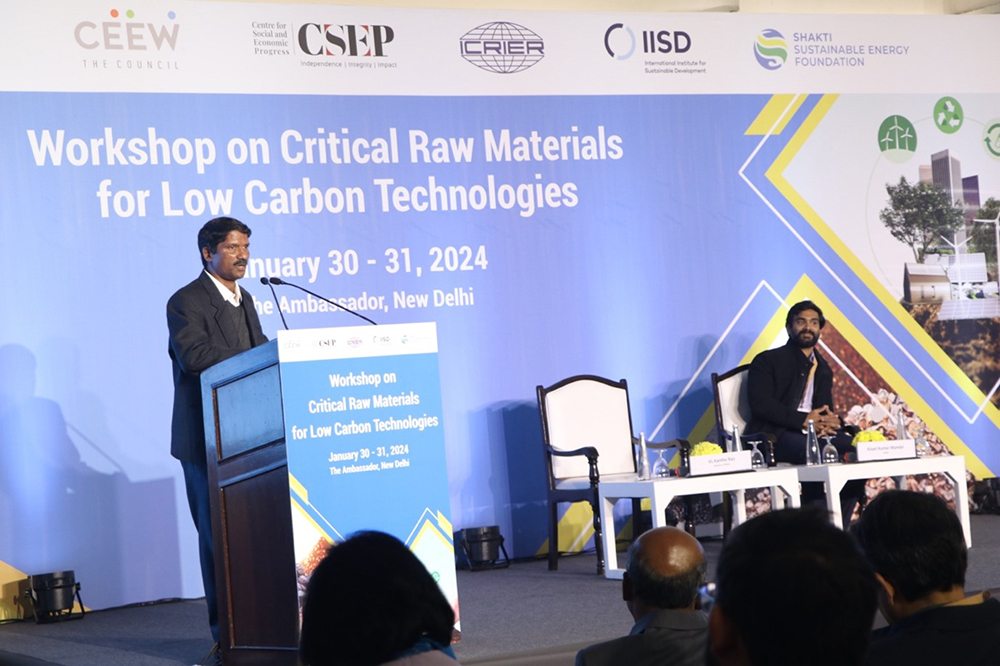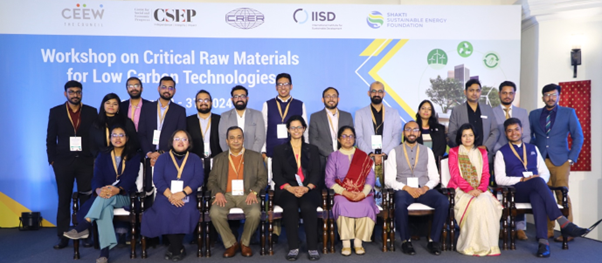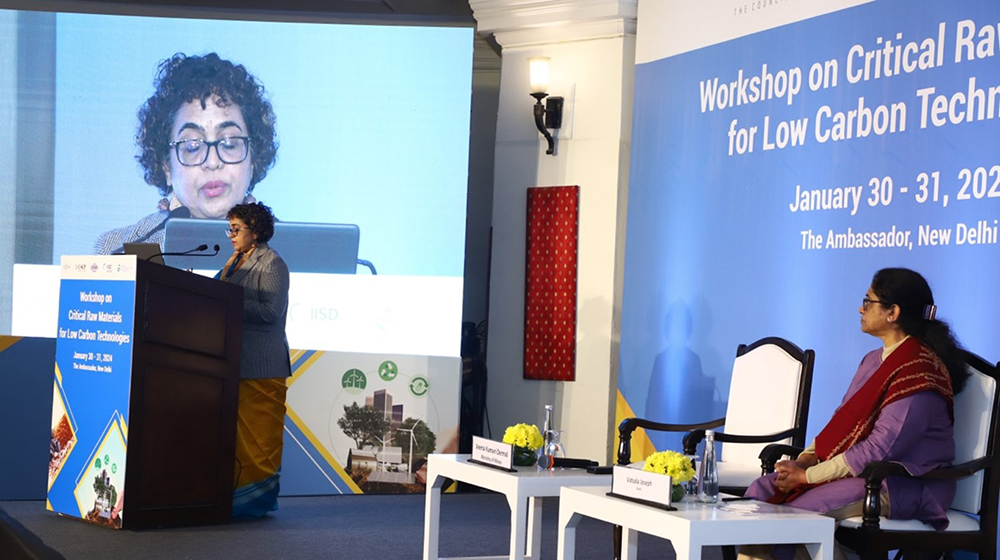
A two-day workshop on ‘Critical Raw Materials for Low Carbon Technologies’ was organised on January 30 and 31, 2024 in New Delhi. As a collaborative effort among Shakti), Council on Energy, Environment and Water (CEEW), Centre for Social and Economic Progress (CSEP), Indian Council for Research on International Economic Relations (ICRIER) and the International Institute for Sustainable Development (IISD), the objective of the workshop was to delve into India’s potential strategies for harnessing Critical Raw Materials (CRMs) and to enable a sustainable low-carbon energy transition. The deliberations during the two days of the convening focussed on India’s pursuit of secure critical mineral supply chains amidst its energy transition, addressing the strategic importance of critical raw materials like Copper, Lithium, Nickel, Silicon, Manganese, and Neodymium essential for low-carbon technologies.
Secretary, Ministry of Mines, Shri B. L. Kantha Rao delivered the keynote address in the inaugural session and shared about the efforts made by the government through the establishment of the National Geoscience Data Repository (NGDR), notification of the accredited agency and financial support for exploration, the introduction of the new licensing regime for junior miners, auctioning of critical mineral block, exploration and mining in other countries, incentivisation for research and development on processing technologies to secure the critical minerals value chain for the country. He also stressed on focussing on recycling as a measure for in-house production of raw materials and developing an ecosystem for the purpose in the country. He called for higher participation of the private players in the Indian critical minerals sector to advance governments efforts of securing value chains domestically.
Koyel Kumar Mandal, Chief of Programmes, Shakti Sustainable Energy Foundation, in his welcome address spoke about various demand and supply side responses that are important for India to secure Critical Raw Materials value chains, each fraught with its own challenges. He mentioned, “we need to collectively come together and address the challenges related to Critical Raw Materials scarcity, uneven distribution, and responsible value chain development for India to meet its clean energy targets and consistently be on the path of decarbonisation. It requires finding ways to incentivise domestic extraction, setting up processing units in the country, developing a recycling ecosystem and pursuing strategies to diversify sources of raw material import globally.”
Plenaries on Day 1 delved into strategies, geopolitical roles, and sustainable practices in critical mineral procurement and technical sessions explored supply chain security and sustainable mining practices, emphasising the need for a cohesive approach. Day 2 focused on environmental, social, and governance (ESG) practices, analytical requirements, localising value chains, and enhancing recyclability.

A total of 100 industry experts, policymakers, diplomats and researchers from various Indian and International organisations such as Ministry of Mines, Ministry of External Affairs, NITI Aayog, Australian High Commission to India, US Ambassy, New Delhi, International Energy Agency, Fraunhofer ISI, Germany, The Initiative for Responsible Mining Assurance, Intergovernmental Forum on Mining, Minerals, Metals and Sustainable Development among others participated in the workshop and enriched the discussions with diverse perspectives.
The closing plenary highlighted key takeaways and outlined future actions, underscoring the workshop’s significance in shaping India’s critical mineral policies and practices. Joint Secretary, Ministry of Mines, Ms Veena Kumari Dermal, delivering a special address in the closing plenary, highlighted the key role private sector need to play along with the government in ensuring development of a resilient CRM supply chain in India. She mentioned that with an emphasis on Research and Development on processing technologies, the Ministry of Mines has revised the Science and Technology programme to support applied research on processing technologies. As per the revised shortlisting criteria, any project needs to have 20% industry participation for approval under the scheme.

The workshop provided a comprehensive platform for dialogue and collaboration, addressing India’s critical mineral challenges and opportunities. It emphasised the importance of integrating ESG principles, leveraging technology for sustainable mining, and fostering domestic value addition. Stakeholders engaged in fruitful discussions, identifying key strategies to enhance India’s position in the global critical minerals landscape. Overall, the event catalysed collective efforts towards achieving India’s objectives in critical mineral procurement and sustainable development.
